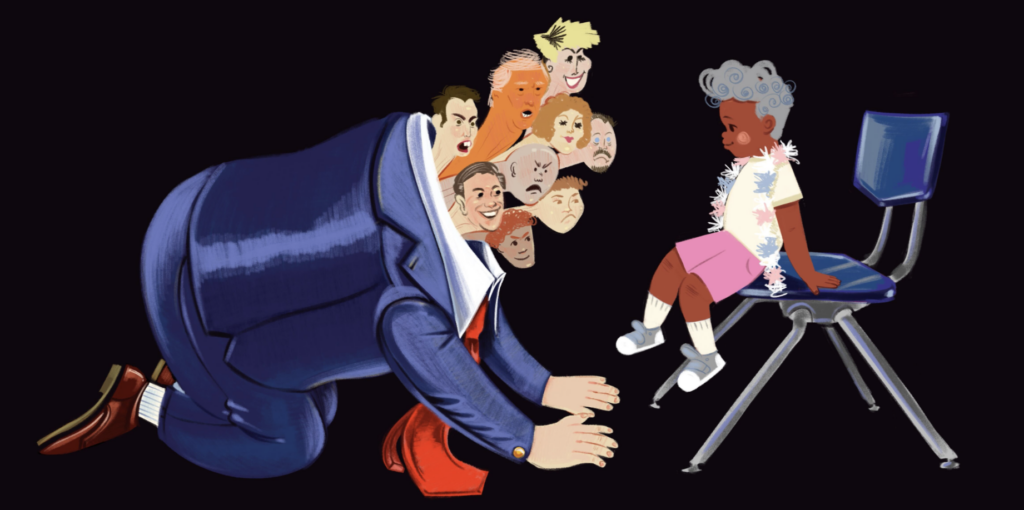Courting Disaster
It’s been said that movie audiences will sit through just about any act of man-on-man violence, but if you show a villain kicking a dog, you’ll send spectators scrambling for the exits. Similarly, it was with jaded eyes that most observers skimmed headlines about the Recording Industry Association of America targeting college-enrolled download gluttons. After all, it’s hard to make heroes out of privileged kids pissing away their parents’ tuition payments while swiping dozens of Dave Matthews tunes. However, on September 9, when it announced legal action against twelve-year-old New York native Brianna LaHara, the RIAA delivered the equivalent of a boot to a movie canine’s cute mug.
The RIAA promptly settled with LaHara’s mother, Sylvia Torres, who paid $2,000 in damages, down from a threatened $90,000. That sent a clear message: Only engage in copious file-sharing if you have a potential press darling in the family. Campus dwellers and corporate suits might be scared straight, but illicit downloading now figures to soar among the elderly and infirm, the preteens and the poverty-stricken — basically, anyone with a sympathetic story. If you’re cute, likeable and/or pathetic enough, people will line up to pay your bills. In some cases, musicians — the alleged victims of file-sharing — might even play a benefit show on your behalf.
It was a considerate gesture for the RIAA to include LaHara and 71-year-old Texas grandpa Durwood Pickle in its subpoena spree, because some of its opponents could use the help. With luck, readers who see “RIAA sues twelve-year-old honor student, grandpa Durwood” in the lead paragraph will be too outraged to scroll down the page to where the “this is only the latest atrocity from the people who brought us gangster rap” hand-wringing begins.
Kansas City Star columnist Mike Hendricks should hope folks stopped perusing his September 12 column after learning of LaHara and Pickle’s plight in his opening sentence. He takes a sarcastic stab at the RIAA early, but he loses steam when he declares, “I think we can all admit the RIAA has every right to seek redress. Theft is theft.”
Now that he’s effectively eliminated any support from anti-RIAA organizations, who would be extremely reluctant to make the admission he takes for granted, Hendricks uses the lawsuits as a jumping-off point for a reactionary rant against modern music.
“When teenyboppers like Britney Spears and Justin Timberlake are the leading recording artists in America, it’s clear the music industry’s glory days are long gone,” he points out, pining for those halcyon eras when Pat Boone, Poison, Journey and Vanilla Ice ruled the roost and ignoring the fact that kids will always love total crap. (LaHara was downloading the Full House and Family Matters theme songs, for the love of God.)
There’s an inherent flaw in the logic of citing artists who sell millions of records as the reason for falling sales. Likewise, there’s a problem with using such platinum sellers as the basis for a “let’s sue them for sucking” argument, in that the roots of these artists’ popularity ultimately lie with the public. It’s profoundly unfortunate that major marketing dollars go toward promoting mindless crowd pleasers instead of exposing intelligent artists, but few RIAA critics focus on this problem. Instead, Web sites such as Boycott-riaa.com advocate buying used discs and avoiding all midsized- and major-label releases.
By convincing consumers not to buy new releases by high-quality artists with major-label ties, anti-RIAA forces have decided that downloaders who aren’t buying albums at all (whom the RIAA can use as evidence for the necessity of its legal campaign) speak more eloquently than those who use their dollars to vote for worthwhile projects, thus encouraging labels to release more challenging titles.
Hendricks sets aside these issues to deliver a grumpy-old-man critique about “lip rings, baseball hats worn sidewise and baggy pants,” much as articles posted on Boycott-riaa.com chide Madonna, Snoop Dogg and Xzibit for indecent public appearances and “pornographic lyrics.”
Clouding the central issue — the validity of the free download as a tool that can lead to artist exposure in an era of monopolized radio — with moral judgments does little to advance the discourse. And using an ostensible commentary on LaHara’s situation to zing Toto and Milli Vanilli, as Hendricks does, accomplishes even less. There’s a big difference between punting a puppy and beating a dead horse.




